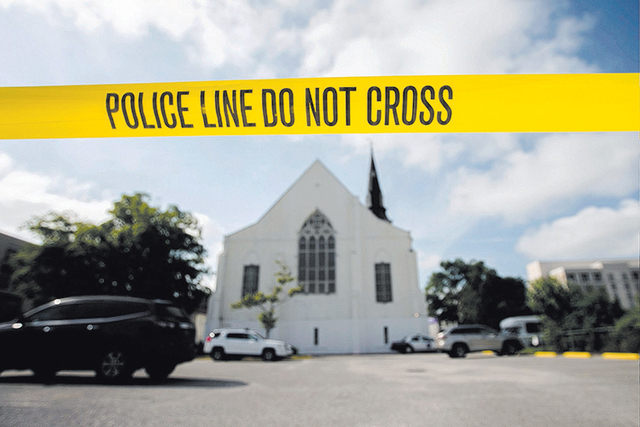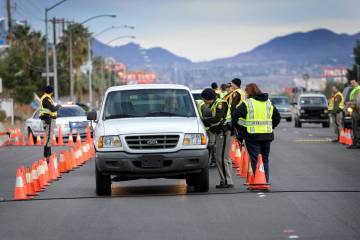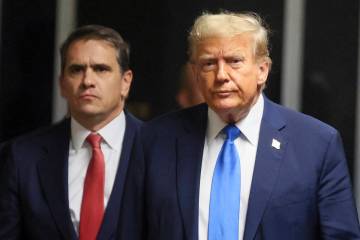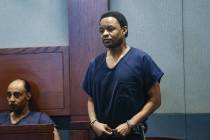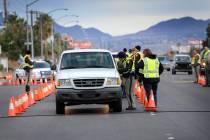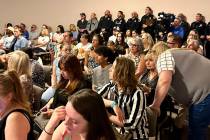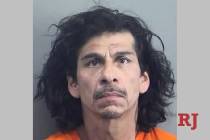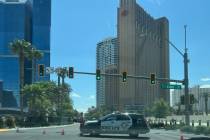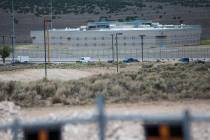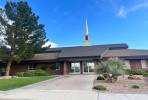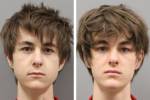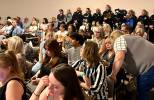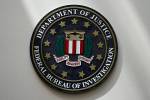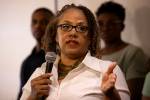Not all Nevada law enforcement agencies consistent in reporting hate crimes
When it comes to reporting hate crime statistics, only a few law enforcement agencies in Nevada have numbers for each of the nine years leading up to 2014, the latest year available, a Review-Journal examination shows.
The county sheriff’s offices and city police departments around the state have reported hate crimes most years, but when there are inconsistencies, administrative errors are to blame. The Metropolitan and Reno police departments as well as campus police at the University of Nevada, Las Vegas, are three agencies with the most consistent filings.
The Henderson Police Department appears not to have reported six hate crimes that took place in 2009, but the department said it was because of a clerical error, and that it was too late to make changes. The state department of public safety compiles the data and shares it with the FBI Uniform Crime Reports. The numbers were not recorded in either agency’s annual report.
For years 2012 and 2013, Nevada failed to report to the FBI if an agency had zero hate crimes or if an agency had simply not submitted its numbers. An FBI spokesman explained that during those years, the state department of public safety “had a policy in place that directed the agencies to submit their hate crime reports only if an incident had occurred.” That policy has been changed, according to the FBI.
The Washoe County Sheriff’s Office also appeared not to have submitted numbers in two separate years, but it turned out not to be the case.
“We’ve actually had none to report, which gave us the option of whether or not to file it, but even with zero reportage the records clerk said she did submit one every year,” said spokesman Bob Harmon about missing years 2009 and 2011. “We’re not quite sure why they’re not showing up.”
Other instances have occurred in which UNLV police reported one hate crime in 2013 and Clark County School District police reported one hate crime in 2014, but each shows up as zero in the FBI numbers.
The state department of public safety said they did not receive a hate crime report from the UNLV or CCSD police, but UNLV records show a hate crime report on a case of religious intimidation was sent on July 19, 2013, to the same email address that receives monthly crime statistics reports from law enforcement agencies.
Criteria for identifying and reporting hate crimes is distributed to all law enforcement agencies in Nevada, according to the state department of public safety’s annual “Crime in Nevada” report. Training is offered periodically.
Overall, hate crime numbers appear to be low in the state, with law enforcement in rural areas reporting zero the majority of years.
For the 16 tribal law enforcement agencies, all reported zero hate crimes in 2014. Crime data in general is submitted to the Bureau of Indian Affairs, which then shares the information with the FBI Uniform Crime Reports. Previous years were not available on the FBI website, and it was not clear why. The Bureau of Indian Affairs did not respond by press time.
A spokeswoman for the Reno Sparks Indian Colony said police chief Darrell Bill had been on the force for 16 years and could not recall a single hate crime incident. Described as a close-knit community, the colony has 1,134 tribal members enrolled, 150 households living in the downtown colony and 165 households in the Hungry Valley.
The definition of a hate crime is one that is motivated by bias based on disability, ethnicity or national origin, gender, race, religion, sexual orientation, gender or gender identity.
Some cases that are investigated as hate crimes are later determined not to be hate crimes due to a lack of evidence of bias.
During a decade of reporting, Las Vegas submitted about 60 hate crimes a year to federal authorities, including a high of 105 incidents in 2006, 65 reported cases in 2013 and 17 in 2014.
Pastor Troy Martinez, a church community leader, said he thinks that could be due to outreach by police, elected officials and religious groups.
That’s the goal, according to the FBI. It said the tally improves awareness and understanding of the problem nationally.
Contact Adelaide Chen at achen@reviewjournal.com or 702-383-0281. Find @adelaide_chen on Twitter. Contact Alexander S. Corey at acorey@reviewjournal.com or 702-383-0270. Find @acoreynews on Twitter. The Associated Press also contributed to this report.
RELATED ITEMS
Patchy reporting undercuts hate crimes statistics



